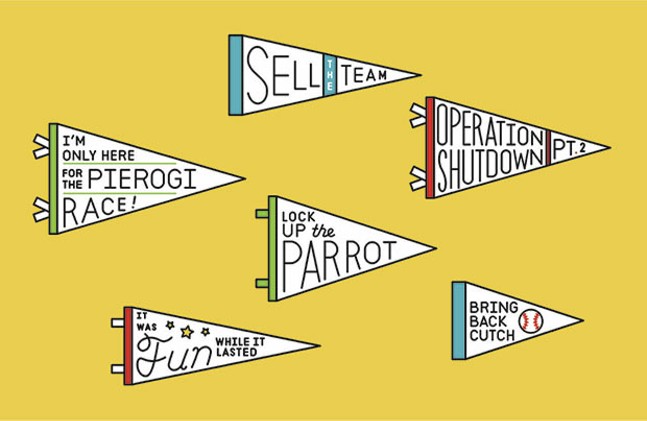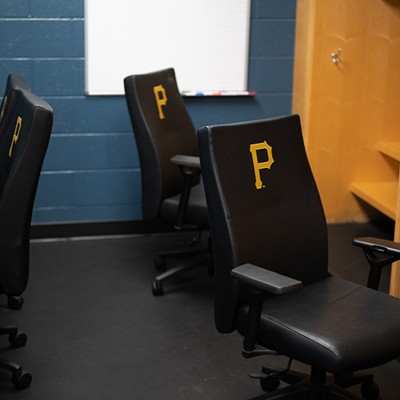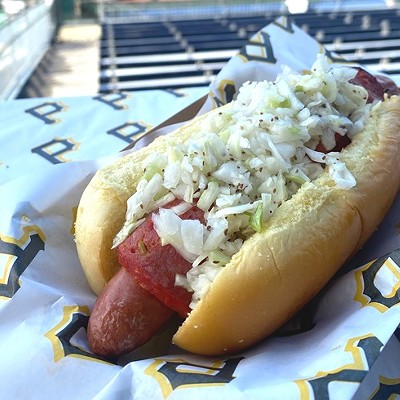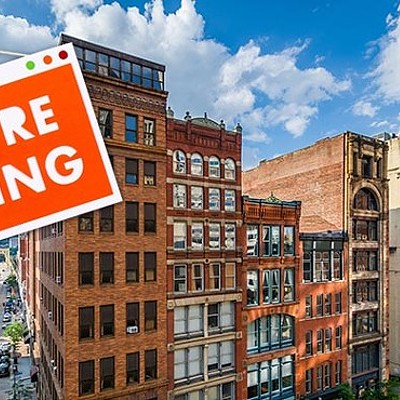Fans of the Pittsburgh Pirates are some of the most resilient baseball fans on earth. Twenty years of losing seasons from 1993 to 2012 didn’t keep fans from PNC Park when the Buccos finally made the playoffs in 2013.
But the 2018 offseason, after two consecutive losing seasons, was an especially hard pill to swallow for Pirates fans. Management traded away the face of the franchise in outfielder Andrew McCutchen, and shipped out arguably the team’s best pitcher, Gerrit Cole. On top of that, Major League Baseball’s players’ union filed a lawsuit against the Pirates and three other MLB teams, accusing them of unfairly benefiting from MLB’s revenue-sharing agreement. In March, the Pirates even upset a large group of fans when Pirates president Frank Coonelly spoke at a Republican Party fundraising event with U.S. Congressional candidate Rick Saccone (R-Elizabeth). Even worse, Coonelly brought along the beloved Pirate Parrot to the fundraiser, further enraging fans.
Following these moves and gaffes, calls for boycotts and protests started spreading on social media. Tens of thousands of fans are supporting these efforts, and some members of the sports media expect to see attendance drop off this year as a result. But will the demonstrations by fans actually affect how ownership manages the Pirates?
Fans recognize their protests are unlikely to lead to significant action, like ownership selling the team. But, they are hopeful that if enough fans speak out, Pirates owners will work to rebuild trust with them. Historically, large-scale boycotts and protests by sports fans are rarely followed through with much conviction. Sports journalists understand the frustration from fans, but believe that anger just shows how hard it will be for fans to really quit the Pirates.
“The thing that would hurt this team the most is apathy,” says Chris Mack, pregame/postgame radio host for Pirates baseball on The Fan 93.7 FM. “And I don’t think we are anywhere near that.”
Jason Kauffman, of Ross Township, has been a Pirates fan for as long as he can remember. He told City Paper via email that this offseason was the most frustrating since 1992. In response to the Pirates 2018 moves, Kauffman started an online petition calling for Pirates majority-owner Bob Nutting to sell the team, “so that we can see a competitive baseball team year in and year out,” according to the petition.
“I started the petition to give frustrated fans a voice,” wrote Kauffman. “I know that forcing Bob Nutting to sell the team is a pipe dream, so my intention was to draw attention to opportunities missed and the arrogance of the front office.”
And the petition garnered a lot more attention than Kauffman presumed it would. Though he expected about 1,000 fans to join him, more than 60,500 people have signed his petition on change.org. Kauffman wrote that the petition’s support shows fans are incredibly upset and could be a force to be reckoned with.
“I hope this leads to change,” wrote Kauffman. “It seems like a lot of people are going to choose to spend their money elsewhere this summer, and that’s what will really get the attention of management.”
In a statement sent to CP, the Pirates responded to the growing number of fan protests and said they value the fervor from fans. Pirates spokesperson Brian Warecki says the last two seasons were “disappointing,” and he hopes the offseason moves will show a clear shift in direction.
“We appreciate the passion of our fans and respect their desire to express that passion both in good times and bad,” wrote Warecki. “Our fans, along with our players, coaches and organization, have much higher expectations.”
Warecki also wrote the Pirates will be “working hard every day to win back those fans” who may have lost faith in the team.
Demonstrations by fans don’t always have the desired impact. Many times boycotts by fans don’t even materialize. Some Pittsburgh Steelers football fans claimed they were boycotting after players didn’t enter the field during the national anthem before a game on Sept. 24, 2017. But, as WTAE sportscaster Andrew Stockey pointed out in September on Twitter, the Steelers game following the anthem fiasco actually had higher TV ratings than the Sept. 24 contest.
Even Pirates fans have questionable follow-through when protesting. In 2007, the Bucco faithful planned a walkout during a home game to protest the team’s losing ways. The walkout gained significant media attention, but only about 100 fans left PNC Park, instead of the thousands that were expected.
Also, in January of this year, several groups formed on social media calling for protests and boycotts of the Pirates. Some even claimed to be planning protests outside of PNC Park on Opening Day, April 2. CP reached out to three of them, and none responded to inquiries. Pittsburgh Mayor Bill Peduto’s spokesperson Keyva Clark told CP in an email that no permits for protesting the Pirates have been filed with the city for April 2.
Mack, of 93.7 FM, says fans’ frustrations are real, and that the Pirates home-opener might not sell out, but most of the efforts by fans to protest the team are a bit of “saber-rattling.”
“I am not unsympathetic, I grew up in Pittsburgh, I get it,” says Mack. “People are fed up ... but, the average fan is not [avoiding] the park because they traded the best players.”
Mack does believe that attendance will be down this year. He says not buying tickets and watching games on TV are the only things fans can do to try to impact Pirates owners, but Mack says even those steps are unlikely to change the tactics of ownership.
“The only thing fans can do is stop watching and stop going to games, but that is really hard for a fan that loves their team,” says Mack. “And this organization is going to make money before they sell a ticket. Tickets are going to be down, but that’s not going to affect the owner’s pocketbook that much.”
MLB’s revenue-sharing agreement insures all baseball teams get a share of the profits made by the entire league. And Mack says that TV advertisements and other revenue sources also help to keep the Pirates profitable, regardless of ticket sales. However, Nutting has seen some financial losses already, thanks to the Pirates’ offseason moves. In February, West Virginia-based Weirton Medical Center temporarily pulled its ads from the Nutting-owned Ogden Newspapers in response to the Pirates trading McCutchen.
Mack also says the Pirates have a good amount of young talent that could help the team compete sooner than fans might think. “They are not tanking like teams are tanking in Miami and Tampa,” says Mack. “They did sort of a rebuild this offseason.”
And if nothing else comes from fans’ protests, Kauffman, the Pirates fan from Ross Township, hopes the owners will act differently moving forward to acknowledge that the fans’ voices are valuable. “They will have to rebuild trust with the fans,” wrote Kauffman. “If they get close again, hopefully they will invest in a player or two to put them over the top."


















